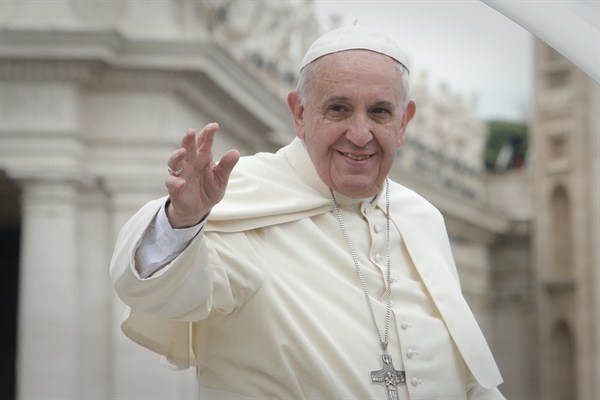The Pope’s visit to the United States this week will include an unprecedented address to the U.S. Congress, opening our eyes to how much has changed in the way religion has become part of American politics and international relations. The head of the Catholic Church has long been seen as a world leader, reaching vast audiences and promoting universal principles of peace and humility. But Pope Francis’ visit seems to represent a step beyond former pontiffs’ travels. His appeal seems to reach across a wide spectrum of believers and more secular audiences who admire his courage and his policy prescriptions. His ability to address major policy issues of poverty and inequality head-on has made for a more direct and explicit link between religious principles and public policy.
There are other more mundane examples of how religion is, like it or not, a more prominent part of our public space. In the suburbs of Washington, D.C., the constantly changing demographic profiles of school districts now include more Muslim and Hindu students, some of whom are questioning why public schools are not closed for their holidays, as is the case with major Christian and Jewish holidays. This year there will be less cause for concern, as the Jewish Yom Kippur and the Muslim Eid al-Adha both fall on Sept. 23—also the date of the Pope’s visit. But secular institutions, public schools among them, now hesitate to name the specific holiday they are closing for, for fear of offending or excluding some group. (The schools now make the determination based on past absenteeism on a particular holiday.)
Americans are raised with a deeply held conviction about the separation of church and state, but the strength of the value and the actual behavior are quite distinct. The Founding Fathers agreed that there would be no state religion, that religion should not be a test for public office and that religious liberty should be protected. But beyond that, they were mostly believers themselves and invoked God and higher powers in their speeches and many other emblems of public identity.

